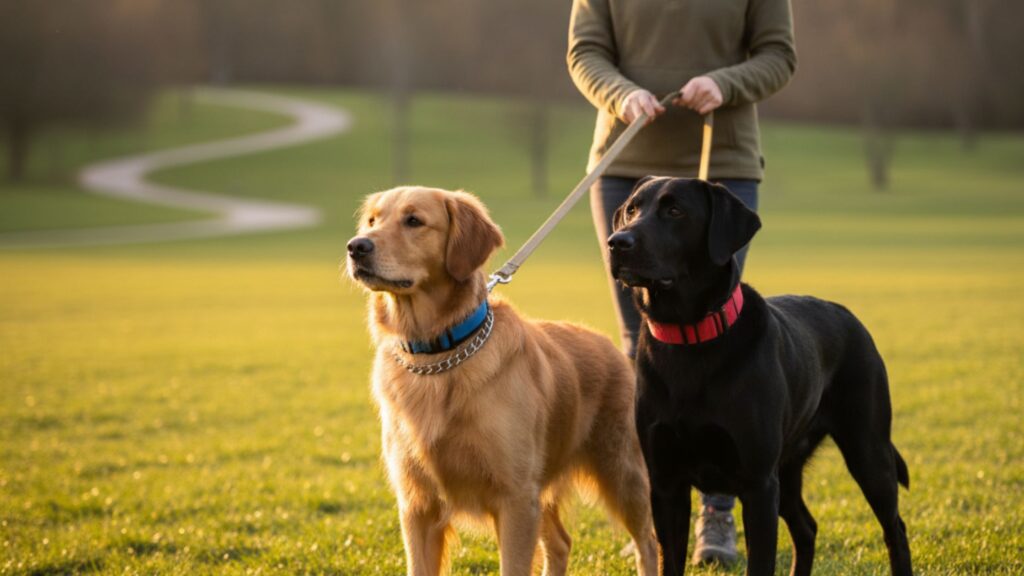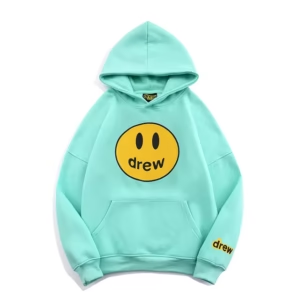
If you are looking to train your dog well, one tool many trainers recommend is a Martingale dog collars. In this article, Lucky Love Dog explores which styles of Martingale collars work best for training.
What Are Martingale Dog Collars and Why Use Them?
What Is a Martingale Collar?
A martingale collar has two loops. The larger loop fits around the dog’s neck, and the smaller “control” loop attaches to the leash. When the dog pulls, the control loop tightens slightly to prevent slipping out, but it stops at a limit so it doesn’t choke.
Why Trainers Like Them
-
They prevent escape better than a flat collar.
-
The pressure is mild and gives the dog a clear cue to slow down.
-
They are safer than choke chains because they won’t tighten indefinitely.
However, they must be properly fitted and used correctly. Otherwise, they lose their benefit or may even cause discomfort.
Key Features That Determine a “Best” Collar
When choosing a Martingale collar for training, Lucky Love Dog suggests focusing on these features:
Material & Durability
Straps made of strong nylon webbing or heavy-duty fabric last longer under tension. Some collars use a chain in the control loop for extra strength.
Control Loop Design (Fabric vs Chain)
-
Fabric control loops are quieter and gentler, suitable for dogs sensitive to noise or touch.
-
Chain loops resist twisting and wear better, ideal for strong pullers.
Cinch Limit (“Limited Slip”)
A good training martingale should only tighten a small amount enough to give a cue but not to choke. The “limit” is crucial.
Buckle vs Slip-on Design
-
Buckle or quick-release helps put on and remove more easily.
-
Slip-on designs (without a buckle) tend to be simpler and stronger but require correct sizing.
Reflective Stitching & Visibility
For training during low light, collars with reflective threads help with safety.
Stability of Adjustment
The collar should not slip or loosen from the correct size once adjusted.
Top Martingale Collar Options for Training
Below are several Martingale collars that consistently rank well in tests or reviews, along with their strengths. These can serve as benchmarks when selecting a collar from Lucky Love Dog or another designer.
Ruffwear Web Reaction Martingale
This is often rated one of the top collars. It features durable webbing, a buckle for easy wear, and a balance between cinch and comfort.
Max & Neo Stainless Steel Chain Martingale
This collar combines nylon webbing with a stainless steel chain in the control loop. It holds its size well and features reflective stitching.
2Hounds Nylon Martingale
Affordable and simple, this model is a good entry-level option. It has durable metal hardware and adjustable sizing.
Non-Stop Dogwear Rock Collar 3.0
Designed for all-weather use, great when training in wet or variable conditions.
These examples show how features vary for different dogs and contexts.
How to Choose the Best Martingale Collar (Step-by-Step)
Here’s a checklist by Lucky Love Dog to help you pick the best Martingale collar for training:
Measure Your Dog Correctly
Measure around the neck where the collar would rest (not too tight). Use that as a baseline.
Choose Based on Behavior
-
For dogs that pull hard, favor chain control loops or tougher webbing.
-
For gentler or sensitive dogs, choose soft fabric loops.
Try the Cinch Amount
Pull gently after fitting. The collar should tighten slightly but not choke.
Test Stability
Give gentle tugs. If the collar size shifts or loosens, it’s not ideal.
Consider Use Environment
If walking in rain, mud, or snow, get collars with quick drying materials or durability in elements.
Ease of Use
If you prefer quick removal, a buckle or snap is helpful. But if you rarely remove it, simpler slip-on versions might suffice.
Training Tips with Martingale Collars
Using the collar properly matters just as much as the collar itself. Here are best practices:
Use the Pressure-Release Principle
Give tension as a cue, and release immediately when the dog stops pulling. This teaches the dog that calm walking = no pressure.
Pair with Positive Reinforcement
Reward good walking and loose leash behavior don’t rely on the collar as the only tool.
Don’t Leave On All Day
Martingale collars are best used during walks or training, not for unsupervised wear. They could snag on objects. Recheck Fit Periodically
Dogs grow, gain or lose weight. Adjust the collar fit as needed.
Potential Risks & When a Martingale Might Not Be Best
A Martingale collar is not a cure-all. Here are cautions:
-
If used too harshly or left tight, it may cause discomfort.
-
For dogs with neck sensitivities or certain medical conditions, harnesses might be safer.
-
In aggressive pulling cases or complex behavior issues, combine with training techniques rather than rely only on gear.
Conclusion
For training purposes, the best Martingale dog collars are those that balance clarity of cue with safety, durability, and comfort. Lucky Love Dog always recommends selecting a collar with a properly limited slip, quality materials, and stability, and then using it with consistent, positive training methods. In the view of a third person observer, when a collar meets those standards and is paired with gentle, reward-based training, it becomes a trustworthy tool rather than a harsh restraint.
Here, you can find more articles.



